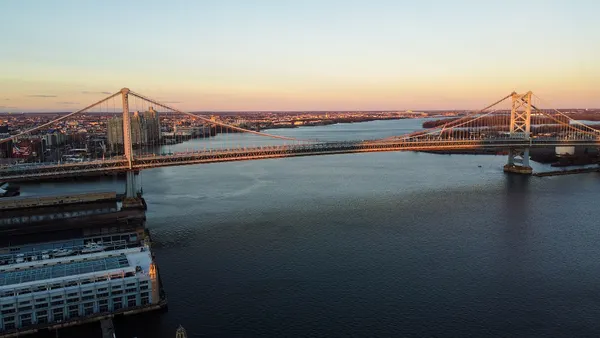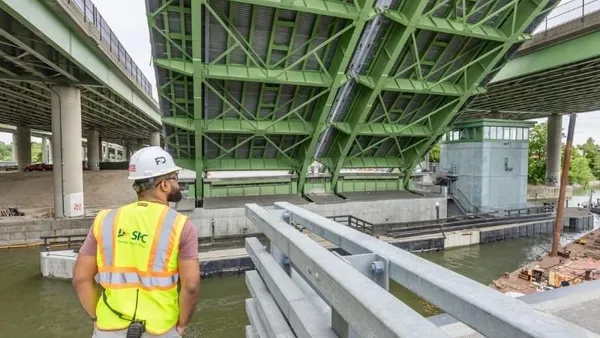Dive Brief:
- New York Gov. Andrew Cuomo has proposed budget legislation that would expand the use of the design-build project delivery method statewide, with the exception of New York City, according to Crain's New York.
- Mayor Bill de Blasio, Cuomo, other officials and a segment of New York City's construction industry support the wider use of design-build, but, according to Crain's, upstate construction groups and public employee unions have successfully lobbied lawmakers against allowing such a change.
- De Blasio is expected to propose design-build legislation for New York City, but experts aren't optimistic that it will gain any traction with state legislators.
Dive Insight:
Proponents of design-build argue that the method saves time and money and that existing city laws prohibiting it could exclude city projects from winning funding under President Donald Trump's proposed $1 trillion infrastructure plan, as it features a prominent public-private partnership component.
Those in favor of expanding design-build into the city cite recent bridge projects like the $4 billion Tappan Zee Bridge and $550 million Kosciuszko Bridge as examples of the how projects can be completed more efficiently, on time and even provide cost savings. Two other high-profile city projects — the $1 billion Javits Convention Center renovation and addition and the $3 billion Pennsylvania Station overhaul — have also been authorized to use design-build.
Cuomo has been a vocal proponent of design-build, particularly on large projects. However, some New York City officials have expressed their hesitancy to make the leap to increase its use as they want greater transparency with the alternative method.
The design-build delivery method has gained traction around the country over the last several years as it allows for collaboration between builders and designers from the beginning of the project, which advocates say reduces conflicts and the need for change orders in the execution phase. Last year, California passed legislation that allowed design-build to be used on state-funded transportation projects, and, in November, Orange County issued the first contract under the new regulation — a $1.2 billion highway expansion.












